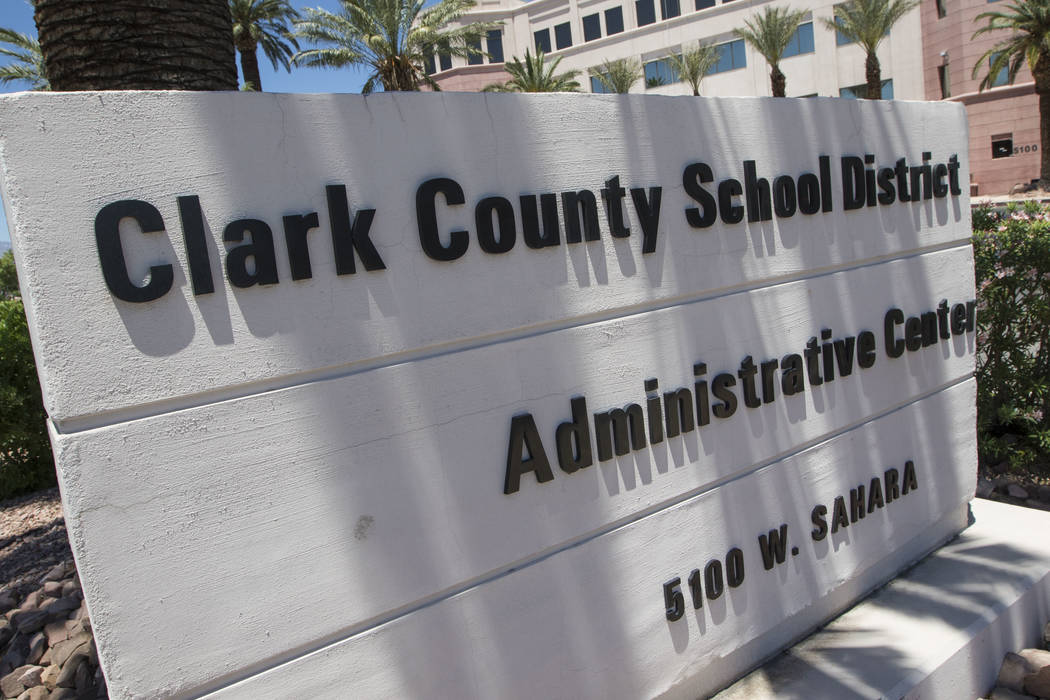Agency downgrades Clark County School District’s bond rating
A credit-rating agency has downgraded the Clark County School District’s bond rating following its monthslong struggle to eliminate a roughly $60 million deficit, and others might soon follow suit.
Fitch Ratings downgraded the district from BBB+ rating to BBB in December, less than one year after bumping the district down from its A+ rating. That drop, which came after the agency revised its rating criteria, was the first time the district’s rating dipped below the A-level in a decade.
The latest rating reflects a reduction in the district’s “already marginal reserves,” which include money in the district’s available fund balance. In fiscal year 2017, the available fund balance declined from $56.4 million to $7.1 million, according to Karen Ribble, a senior director in Fitch’s U.S. Public Finance group.
At the same time, the report notes, the district has little opportunity to raise money and cut spending.
“Like most school districts across the country, there’s limited to no ability to raise revenues,” Ribble said.
Bond ratings can affect the district’s ability to borrow money, particularly for long-term capital projects. Like a credit score, a bad rating might affect a district’s ability to accrue debt at lower interest rates.
The budget deficit for fiscal year 2018 slashed 277 central service positions, both vacant and filled. To avoid cutting even more posts, the School Board lowered the unassigned ending fund balance — the amount of money left over at the end of the year that’s not set for any particular use — to 0.78 percent of general fund revenue.
The district believes that decline was one of the more significant factors in the Fitch Ratings downgrade, a spokeswoman said in an email.
The downgrade could present a negative image in the bond market, she said.
“However, the district will continue to work with the investment community to ensure they understand the strength of the revenue streams utilized to pay for bonds,” the spokeswoman said, “as well as the significant balance in the reserve account related to bonds, which we believe will provide sufficient support for future bond offerings.”
The district still will advertise the higher ratings from Moody’s and S&P Global Ratings, which are A1 and AA-, respectively.
Both those bond-rating agencies changed their outlook from stable to negative in November, meaning the district could see a lower rating in the future. All three ratings, however, still fall within investment grade, meaning they pose less risk for investors.
The outlooks were shifted to negative to reflect the deficit and its causes, including lower-than-expected state revenues and the arbitration decision for administrators.
S&P Global Ratings analysts also argued that the district’s practice of negotiating contracts with its unions every year adds uncertainty to its financial stability.
“In addition, the district’s low budgetary flexibility exposes it to adverse impact when actual revenues or expenditures deviate from budget assumptions — even if the deviations are relatively routine and one time in nature,” the rating summary states.
Contact Amelia Pak-Harvey at apak-harvey@reviewjournal.com or 702-383-4630. Follow @AmeliaPakHarvey on Twitter.
CCSD's bond ratings
— Fitch Ratings: BBB
— Moody's: A1
— S&P Global Ratings: AA-






















